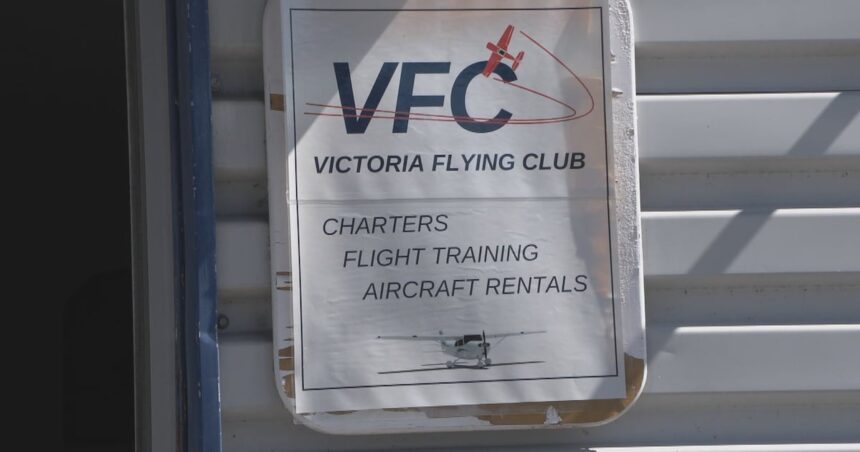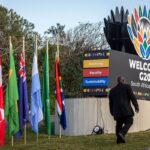The morning routine at Victoria Flying Club had barely begun when news of the hijacking shattered the calm. “We were just doing our regular aircraft checks when the calls started flooding in,” recalls James Weatherby, the club’s president, his voice still unsteady three days after one of their Cessna 172s was stolen and flown into restricted airspace over Vancouver International Airport.
The July 17 incident forced a three-hour ground stop at one of Canada’s busiest airports, affecting nearly 15,000 passengers on 87 flights. What makes this case particularly disturbing isn’t just the breach of aviation security, but how easily it happened.
“Our aircraft have standard locks, industry-standard procedures,” Weatherby explains during our interview at the club’s hangar, where security personnel now patrol visibly. “But someone who knows small aircraft can defeat these measures. That’s the reality most flying clubs face.”
Transport Canada records reveal this was the sixth small aircraft theft in British Columbia since 2023, but the first resulting in airspace disruption of this magnitude. The suspect, now identified as former student pilot Marcus Denton, 34, had taken three lessons at the club in 2024 before being dismissed for erratic behavior.
I examined the club’s training logs, which noted concerns about Denton’s “unusual interest in airport security protocols” and “questions about YVR approach corridors” that instructors flagged as inappropriate. Yet these warnings never reached federal aviation authorities.
Mary Chen, a cybersecurity expert with the Electronic Frontier Foundation, points to a critical gap in aviation security. “We’ve focused enormous resources on commercial aviation security while leaving general aviation with minimal oversight. This creates an obvious vulnerability that was just waiting to be exploited.”
The RCMP’s integrated national security team confirmed they recovered a manifesto from Denton’s apartment outlining grievances against “elites who use private jets” and expressing intentions to “expose the hypocrisy of climate policies.” Court documents show Denton had previously been investigated for threats against a climate research facility in 2023, but charges were never filed.
“This represents a perfect storm of regulatory blindspots,” says former Transport Canada inspector Gerald Mackenzie. “Flying clubs operate on thin margins. They can’t afford sophisticated security systems, and we haven’t required them to implement such measures.”
Walking the perimeter of Victoria International Airport where the flying club is based, I noticed the contrast between commercial areas with biometric access controls and the general aviation section with simple chain-link fencing. A small gate with a keypad provided the only barrier to the club’s aircraft parking area.
Club member Andrea Nguyen, who has flown from the facility for six years, demonstrated how she accesses the aircraft. “We use a logbook, take a key from the office. It’s based on trust. Has to be—we’re a community.”
The Cessna 172 Denton allegedly stole had been fueled the previous evening for an early morning lesson. He apparently used his still-active access code to enter the gate shortly after 4:30 a.m., according to security footage I reviewed. By 5:15 a.m., the aircraft was airborne.
Nav Canada records show the Cessna entered YVR’s controlled airspace at 5:47 a.m., triggering automated warnings. When the aircraft failed to respond to radio calls, YVR implemented its emergency protocols, halting all departures and arrivals while RCAF CF-18s were scrambled from CFB Comox.
“The response followed exactly the post-9/11 playbook,” explains aviation safety consultant Liam Jackson. “What’s concerning is that a relatively unskilled pilot in a small aircraft could create this level of disruption.”
Transport Minister Caroline Bennett announced emergency consultations with general aviation stakeholders following the incident. “We must balance accessibility of flight training with appropriate security measures,” her statement read. “This incident demonstrates we haven’t found that balance yet.”
For the Victoria Flying Club, founded in 1946 and responsible for training generations of pilots, the incident has been devastating. “We’ve enhanced security immediately,” says Weatherby. “But this raises questions about the future of community-based flight training in Canada.”
The club has installed new surveillance cameras and implemented two-person verification for aircraft access. They’ve also begun parking aircraft with control locks that require specialized tools to remove—measures that small flying organizations across Canada are rushing to adopt.
Citizens’ Aviation Watch, a public interest group focused on aviation safety, has been warning about these vulnerabilities for years. Their 2024 report identified 27 flying clubs across Canada with “inadequate security protocols to prevent unauthorized access.”
RCMP Superintendent Janet Morris confirmed that Denton faces multiple charges including aircraft theft, endangering aviation safety, and violations of the Anti-terrorism Act. “We’re investigating whether he acted alone or had assistance,” she said at yesterday’s press briefing.
Meanwhile, the economic impact ripples outward. Tourism Vancouver estimates the airport closure cost the regional economy approximately $4.2 million in lost productivity and accommodations for stranded travelers.
Back at Victoria Flying Club, instructor Michael Tomlinson points to a wall of photographs showing smiling graduates next to aircraft. “This is who we are—not security threats. We’re people passionate about flight. But now we’re all going to be treated with suspicion.”
As Transport Canada’s emergency directive requires all flying clubs to review security protocols, the question remains whether small aviation organizations can survive the increased regulatory burden while maintaining accessibility for new pilots.
“Aviation has always balanced freedom with responsibility,” reflects Weatherby, looking out at his club’s fleet of training aircraft, now sitting idle as investigations continue. “Finding that balance just got a lot harder.”






